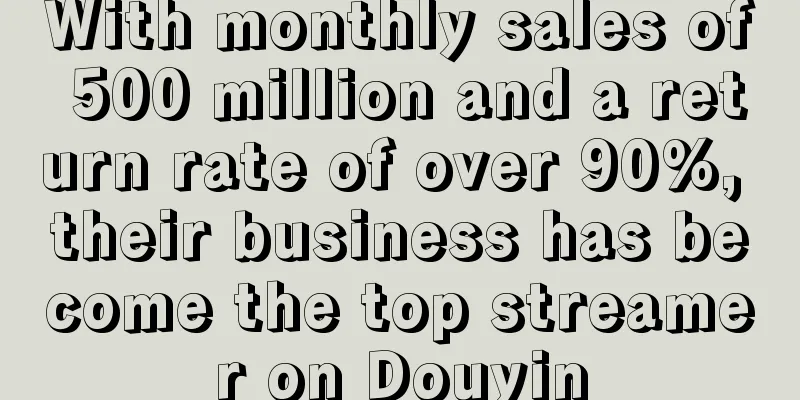Business-oriented VS technical data analyst, which one has a better future?

Many students have heard that data analysis can be divided into technical and business types. What are the differences between the two? Which one is more suitable for you? Let's explain it in detail today. Business VS Technology, What is the Difference?The characteristics of technical data analysis positions are as follows:
The characteristics of business data analysis positions are as follows:
So intuitively speaking, it is actually the difference between "whether the interview selects business experience" and "whether to serve one department or take on various demands after joining the company". Therefore, when students are interviewing, don’t just look at the skills at the bottom of the recruitment requirements, but also look at the job responsibilities above. Remember to ask during the interview:
This will make it easier for you to judge the situation. Often, students do not read carefully and are not fully prepared, and are confused by a barrage of business questions. This is a waste of opportunity. There is a special situation, that is, some positions are in the data center, but they are similar to "Data BP" or service business. At this time, many business questions will also be asked. Technical data analysis sourcesLarge companies all have dedicated data teams, and even larger companies have independent data centers. These organizations are usually set up under IT and are the source of so-called technical analysts. As for the degree of professionalism of specific work, it mainly depends on the size of the organization. Generally, an independent data center will have separate divisions: data governance, data warehouse development, BI system development, data analysis, and algorithm models. The data analysis team is dedicated to accompanying the business to handle complex data retrieval requirements, while fixed data dashboards are handed over to BI development. Of course, some companies are not that big, so they will merge teams. Some companies are too small to recruit one or two people to do "full stack data analysis". The experience of working in such a makeshift team is very bad. You are often exhausted just by cleaning up garbage data, and are also criticized for "not being deep enough in your analysis", so be careful when looking for a job. The two most critical issues are: Do you have your own data warehouse/data team? If you don’t have one, you have to think carefully. It’s okay for a rookie to go there to gain experience, but it’s not recommended for experienced people. Business data analysis sourcesMany business departments that use data frequently also recruit people on their own, and this is where business analysts come from. There are three common types: Category 1: Strategic Development Department, Group Marketing Department, Business Management Department. These departments are the decision-making centers of the company and often need to make data reports, analyze business development, formulate business plans, formulate budgets, track business development, and analyze business problems. Because I often need to recruit people myself. The job title may be called "data analysis" or "operation analysis" or "business analysis", but the work is similar. The second category: user operation, product operation, strategy operation, sales operation, risk control and anti-fraud departments. These departments need to design business strategies, track business execution results, diagnose business problems, guide front-line work, and have requirements for specific business issues, such as user analysis, product analysis, strategy analysis, and risk analysis. Therefore, they often recruit people, and some even have their own analysis teams. In addition to "data analysis," the job titles may also be called "data operations" or "user analysis." The third category: customer service, sales, and supply chain. These departments use a lot of manpower and are responsible for many matters, such as daily handling of customer inquiries/complaints, receipt/delivery of raw materials, production progress statistics, sales progress tracking, etc., so they often recruit people. It’s just that these departments are more on the front line, and the positions they recruit are generally “specialists”, such as “sales statistics specialist”, “customer service statistics specialist”, and “purchasing statistics specialist”. Just from the names of departments and positions, you can tell the difference. In fact, most of the grassroots "XX data specialists" are just bricklayers who use Excel to process basic statistical tables every day. They have no technical content, low salary, and bleak future. Although the title is "sales analyst", when I really go to interview for some senior analysis positions, I am either disliked for lack of experience or poor thinking. Unless you are a career changer with zero foundation and want to gain some experience, it is not recommended. Seeing this, some students will definitely ask: So which one is better, technical analysis or business analysis? Business VS Technology, Which One Should You Choose?For students, I strongly recommend that you don't consider business analysis, but to find a job writing SQL for three months. It doesn't matter what company, as long as you can write SQL. Because students often have a crush on data analysis work. They think they are suitable for data analysis, but when they write 2,000 lines of SQL, check data, and clean data every day, they find it boring and want to run away. Therefore, it is very important to find an internship to experience the real feeling. Some students regard business analysis as a way to avoid writing SQL. “I don’t want to write SQL, can I do business analysis?” Well, the problem is that students don’t understand business. With this mentality, it is easy to find a clerk job, but after working for a few months, you find that you are just an Excel porter and you can’t continue. For students who are already working, it mainly depends on what you are better at and what you want to do. Some business students want to transfer data because they are tired of transactional work. For example, if you are doing membership operations, you need to purchase membership gifts, handle member complaints, set SOPs, and then go to various places to give presentations. It is really annoying. If you are familiar with the membership system and activity rules, it is also very good to transfer data. At this time, you can switch to business data analysis and give full play to your advantage of understanding the business. Although some students are good at writing SQL, they are familiar with the business, especially the product/strategy department, and have participated in many product/algorithm AB tests. At this time, they have an advantage in interviewing for product analysis, user analysis, and strategy analysis at large companies. |
<<: Xiaohongshu’s Double 11 is a little different!
>>: What is “one inventory” across all channels?
Recommend
10,000 words review | WeChat ecosystem omni-channel marketing, video accounts fill the last link
WeChat has been developing continuously over the y...
How can I register on Shopee? How can I register?
There are more and more stores on the Shopee platf...
Which Shopee second site is better? What other sites are there?
Now many domestic merchants have opened stores on ...
How is your private domain sales during the 2023 Spring Festival?
Data released by major platforms and official medi...
Bawang Tea Princess has no "seven-year itch"
In today's increasingly fierce competition in ...
Isn't the advertising slogan just a catchy phrase? Why do you charge me tens of thousands of dollars?
Behind the advertising slogan is the manifestation...
Xiaohongshu's Hot Articles Routine Summary in September
Xiaohongshu Hot Articles Beauty Case 1: Awesome! A...
Brand Growth|2023 Brand Growth Methodology
Brands need to go through brand growth from 0 to 1...
How do I move links to Lazada? Where can I set up logistics for Lazada?
For many new merchants, how to efficiently manage ...
This article tells you what is hidden behind “customer needs”?
How to find inspiration from products and discover...
What are the top 10 best-selling products on Amazon? What are the unpopular but highly profitable products?
There are many types of products on the Amazon pla...
Can individual merchants join shein? Are the entry requirements strict?
Shein is an international fashion e-commerce platf...
Will I still be charged monthly rent if I cancel my shopyfy account? What should I pay attention to?
Shopyfy is an independent website, and it is diffe...
The end of B&B is self-media?
During the past May Day holiday, the popular touri...
Why is Amazon spending too much money on advertising but not getting any sales? What are the reasons?
There are many merchants opening stores on the Ama...









